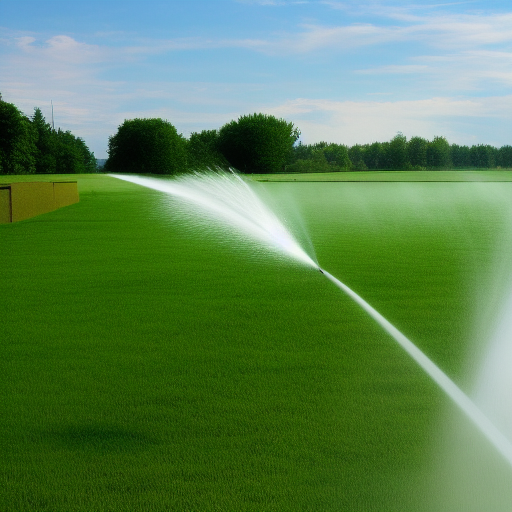
Innovative Soil Sensors Boosting Crop Yield and Quality
This is where innovative soil sensors come into play, revolutionizing the way farmers monitor and improve their crop yield and quality.

This is where innovative soil sensors come into play, revolutionizing the way farmers monitor and improve their crop yield and quality.
Agriculture is a cornerstone of our society, providing the food we consume every day. As the global population continues to grow, there is an increasing need for sustainable and efficient farming practices to meet the rising demand for food. One key aspect of optimizing agricultural productivity lies in understanding and managing soil conditions. This is where innovative soil sensors come into play, revolutionizing the way farmers monitor and improve their crop yield and quality.

Understanding Soil Health:
Soil health is fundamental to successful crop growth. It encompasses factors such as nutrient content, moisture levels, pH balance, and the presence of pests, diseases, or contaminants. Traditionally, farmers relied on manual soil sampling and laboratory analysis, which was time-consuming and provided limited insights. However, with the advent of innovative soil sensors, farmers now have access to real-time data, enabling them to make informed decisions and optimize their farming practices.
The Role of Soil Sensors:
Innovative soil sensors are designed to measure various parameters that influence soil health. These sensors can accurately assess soil moisture, nutrient levels, salinity, temperature, and even detect the presence of harmful pathogens. By continuously monitoring these factors, farmers can identify any imbalances or deficiencies and take timely corrective actions. This proactive approach helps maximize crop yield, minimize resource wastage, and reduce environmental impact.
Soil Moisture Sensors:
Water is a critical resource for plant growth, and maintaining optimal soil moisture levels is essential. Soil moisture sensors provide farmers with real-time data on soil water content, allowing them to determine when and how much irrigation is needed. This precise information helps prevent overwatering or underwatering, both of which can negatively impact crop health and productivity. By optimizing irrigation practices, farmers can conserve water resources and promote sustainable agriculture.
Nutrient Management Sensors:
Nutrients are vital for plant growth and development. Innovative soil sensors equipped with nutrient management capabilities can measure the levels of essential elements such as nitrogen, phosphorus, and potassium in the soil. With this information, farmers can create tailored fertilization plans, ensuring that crops receive the right amount of nutrients at the right time. By optimizing nutrient management, farmers can reduce fertilizer usage, minimize nutrient runoff, and improve crop quality.
pH and Salinity Sensors:
Soil pH and salinity are critical factors that influence plant health and nutrient availability. Innovative sensors can accurately measure soil pH levels and salinity, allowing farmers to adjust soil conditions accordingly. By maintaining optimal pH levels, farmers can enhance nutrient uptake and maximize crop yield. Similarly, monitoring salinity levels helps prevent salt buildup, which can be detrimental to plant growth. Adjusting irrigation practices or employing soil amendments based on sensor data can help mitigate salinity-related issues and improve crop quality.
Pathogen Detection Sensors:
Plant diseases caused by pathogens can have a devastating impact on crop yield and quality. Innovative soil sensors equipped with pathogen detection capabilities can identify the presence of harmful organisms, including bacteria, fungi, and nematodes. Early detection enables farmers to implement targeted disease management strategies, such as using specific fungicides or adopting crop rotation practices. By preventing or minimizing disease outbreaks, farmers can protect their crops, optimize yield, and reduce the need for chemical interventions.
Data Integration and Analysis:
The true power of innovative soil sensors lies in their ability to collect and analyze vast amounts of data. By integrating sensor data with advanced analytics platforms, farmers can gain valuable insights into soil health trends, crop performance, and environmental conditions. These insights can inform decision-making processes, enabling farmers to fine-tune their farming practices for improved yield, quality, and sustainability.
Challenges and Future Directions:
While innovative soil sensors have revolutionized farming practices, there are still challenges to address. Sensor calibration, data interpretation, and affordability are some of the key areas requiring further development. Additionally, ongoing research and innovation are needed to expand the capabilities of soil sensors, including the integration of wireless technologies, artificial intelligence, and machine learning algorithms.
Conclusion:
Innovative soil sensors have emerged as powerful tools for farmers, empowering them to optimize crop yield and quality. By providing real-time data on soil moisture, nutrient levels, pH balance, salinity, and pathogen presence, these sensors enable precise decision-making and proactive management practices. As technology continues to advance, the integration of sensor data with advanced analytics will further enhance farming practices, promoting sustainable agriculture and ensuring a resilient food supply for future generations.